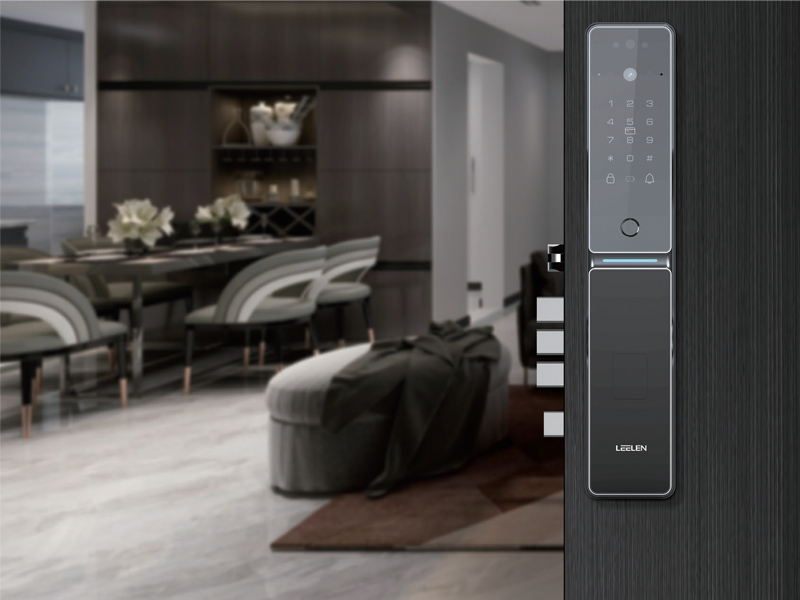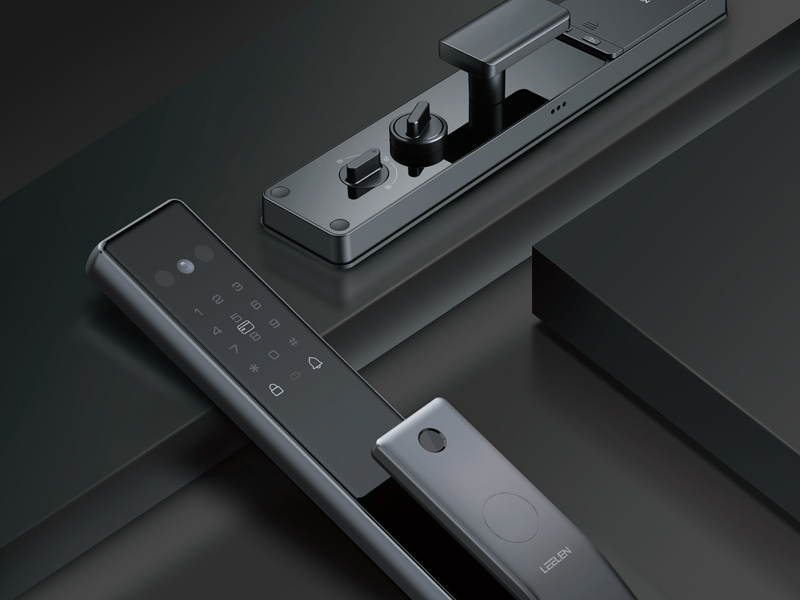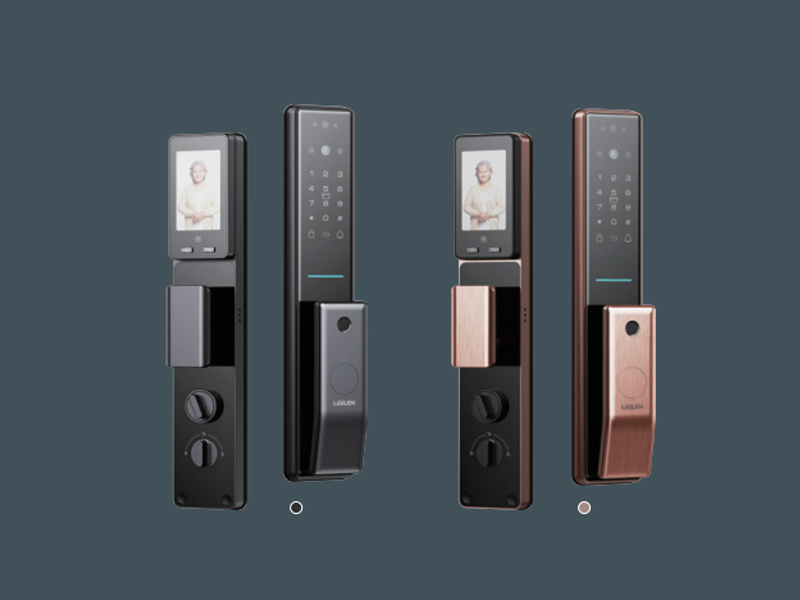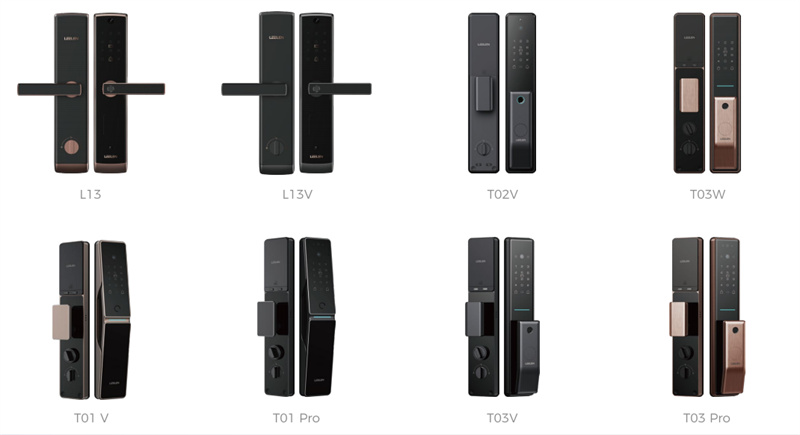How Smart Locks Work and Their Security: A Complete Guide
Smart locks are rapidly becoming a top choice for homeowners and businesses alike, as they offer keyless entry and enhanced security. Whether you're looking to upgrade your home’s security system or seeking a more convenient way to control access, understanding how smart locks work and their safety features is essential. This article delves into the mechanics of wifi smart locks, their advantages, disadvantages, and security considerations to help you decide if a smart door lock wifi is the right choice for you.
What Is a Smart Lock?
At its core, a smart lock is an electronic lock that allows you to control access to your property without the need for traditional keys. Using wifi smart lock technology, users can lock or unlock their doors remotely through a smartphone app, offering both convenience and flexibility. These locks are part of the growing trend of smart home devices that work together to automate various aspects of home security.
Smart lock technology integrates features like keyless entry, remote access, and customizable entry codes, all of which enhance the security and convenience of your home. Many smart locks are compatible with voice assistants like Amazon Alexa or Google Assistant, making them even easier to control hands-free.
Features of the Best Wifi Smart Lock
| Feature | Benefit |
|---|---|
| Remote Access | Control access from anywhere via app or voice assistant. |
| Keyless Entry | No need to carry physical keys or worry about losing them. |
| Customizable Entry Codes | Grant temporary access to guests, cleaning staff, or delivery people. |
| Auto-Locking | Automatically locks the door after a set period. |
| Security Alerts | Receive notifications when someone enters or exits. |
How Do Smart Locks Work?
Smart locks typically operate using wifi smart lock technology, Bluetooth, or a combination of both. Here’s a breakdown of how they work:
Wi-Fi Connection: The lock connects to your home’s wifi network, allowing you to control it remotely via a smartphone app. This is ideal for locking or unlocking doors when you're away.
Bluetooth: Some smart locks use Bluetooth to connect directly to your phone when you're in proximity. This is great for unlocking your door when your phone is nearby without needing an internet connection.
App Control: Most smart locks come with a dedicated app that allows you to lock/unlock the door, check access logs, and set permissions for different users.
Biometric Access: Some models even offer fingerprint scanning or facial recognition for an extra layer of security.
With these options, smart door lock wifi systems offer unmatched convenience. You can unlock your door from anywhere, monitor access, and even receive alerts when certain users enter or exit your home.
The Advantages of Smart Locks
Convenience and Flexibility
Keyless entry means no more fumbling for keys. You can unlock your door with a tap of your phone or a voice command, saving you time and hassle, especially when your hands are full.
You can also create and share temporary access codes for guests, dog walkers, or housekeepers, eliminating the need for extra physical keys.
Enhanced Security
Smart locks offer advanced security features such as encryption, custom codes, and the ability to monitor access in real-time.
Remote locking and unlocking ensures that you can secure your home even if you're not physically present, reducing the risk of unauthorized entry.
Integration with Smart Home Devices
When paired with other smart home devices like cameras or lights, wifi smart locks can become part of a fully integrated security system, providing more robust protection.
Are There Any Drawbacks to Smart Locks?
While smart locks offer impressive advantages, there are a few potential drawbacks to consider before making the switch:
Higher Upfront Costs
Smart locks are more expensive than traditional locks, and the initial installation can be an investment.
Some models may require professional installation, which adds to the cost.
Dependency on Power and Wi-Fi
Since smart locks rely on wifi or Bluetooth, any power outage or wifi disruption can render the lock inoperable. For this reason, it's essential to choose a lock with a backup battery or a physical key option as a failsafe.
Security Risks
While wifi smart locks are generally secure, any device connected to the internet is vulnerable to hacking. However, with proper precautions like using encryption, frequent updates, and strong passwords, the risk can be minimized.
Battery Life
Are Smart Locks Vulnerable to Hacking?
Like all internet-connected devices, smart locks can potentially be hacked. However, the level of risk depends on the type of lock and the security measures in place. There are a few common ways that hackers might attempt to compromise a smart lock:
Weak Wi-Fi Networks: If your home wifi network isn’t secure, hackers could potentially gain access to your smart lock.
Bluetooth Interception: Some locks use Bluetooth for local connections, which could be vulnerable if not encrypted properly.
Compromised Apps: If your smartphone is hacked or you’re using an outdated app, a hacker might gain access to the lock’s functionality.
How to Protect Your Smart Lock from Hacking
To safeguard your home, take the following steps:
Regularly update the lock firmware to ensure it has the latest security patches.
Use strong, unique passwords for your lock and any associated apps.
Enable two-factor authentication (2FA) for an extra layer of protection.
Invest in a lock that offers Advanced Encryption Standard (AES), which adds a robust layer of data security.
Choosing the Best Smart Lock for Your Home
When selecting a smart lock, it’s important to consider the following:
Compatibility with Existing Security Systems: Choose a smart lock wifi that works seamlessly with other home security devices, such as cameras and alarms.
Power Source and Backup: Make sure your lock has a backup power option, such as a physical key or a rechargeable battery.
Integration with Smart Home Devices: Look for a lock that integrates with your voice assistant (like Alexa or Google Assistant) and smart home hub.
In conclusion, while wifi smart locks can offer significant advantages in convenience and security, it’s important to weigh the pros and cons carefully. With proper precautions, a smart lock can be a secure and reliable addition to your home security system.
Conclusion
Smart locks are more than just a convenient way to lock your doors; they offer a new level of security, flexibility, and control. Whether you're looking for the best wifi smart lock for your front door or a more advanced smart door lock wifi system for your entire home, these devices provide a modern solution to traditional locking methods. However, as with any technology, it’s important to stay vigilant and take steps to protect your system from potential threats.




